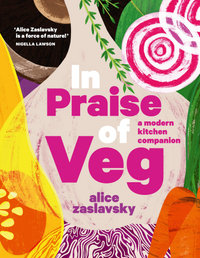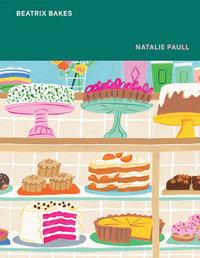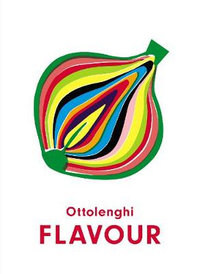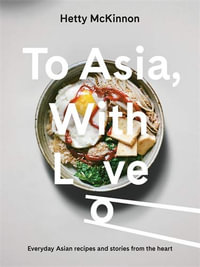Industry Reviews
"'The story, with recipes, of how the Ayubi family fled Afghanistan for Australia and opened a restaurant, Parwana, both to hold onto their culture and to share it. It's the story of Afghanistan too, the country where, as author Durkhanai Ayubi writes, has long been known as the 'graveyard of empires.' India, Mongolia and the countries of the Middle East have all left their stamp on Afghan food so you'll find kebabs, dahls, dumplings and rice pilafs. I read this cover to cover, feeling grateful that someone had taken such care with both the story and the recipes. Then I make bolani - flatbreads - stuffed with coriander-spiced pumpkin. Parwana stole my heart. Out October 1.'- Diana Henry
'I believe fervently that cookbooks have to be more than just compilations of recipes. (But then, I also believe that a recipe in itself tells a story, so I'm certainly not meaning to disparage the notion of the recipe, but there's no need to get into that now!) Social history is conveyed vitally through food, as is, so crucially, emotional resonance. Parwana tells many stories: of the flight of a family from Afghanistan to Australia; the setting up of a restaurant in Adelaide; of the troubled history of the Afghani people; of the flavours and dishes that give a vital sense of belonging. When you have your country taken away from you, home has to reside in family and food. This is the refugee experience, but it is - though less painfully, of course - to a certain extent true of all of us, I think.
But Parwana is more than an elegy, it is a celebration: the recipes in it bulge with colour and flavour and life. It's as rewarding to cook from as to read, and there is so much I do want to cook: the luscious dumplings, Mantu; chicken kebab on flatbread (Kebabeh Degee Morgh); sticky rice with lamb (Sholeh Gosht), Cream Rolls and all the flatbreads. Indeed, it's a flatbread recipe I bring you now, the Bolani, hand-rolled and stuffed, and quite irresistible.' ' - Nigella Lawson
Daughter-mother duo Durkhanai and Farida Ayubi intertwine history and food, and the personal and political, in this rich collection of Afghan recipes. ""Of the millions of families displaced, mine was one,"" she says of their flight in 1985 from Afghanistan, when ""the aura of the nation had been scrambled."" Tying together the threads of their journey (they now own two restaurants in Australia) are family photos and an enticing array of dishes pictured in bold colors, with their recipes. Ayubi's maternal grandfather cooked spicy coriander-scented lamb kebabs ""over hot coals in the garden"" to celebrate Eid, the end of Ramadan; intricate steamed dumplings (mantu) filled with cabbage and carrots and topped with tomato and lamb sauce capture ""cross-cultural pollination"" along the Silk Road. Recipes are loosely organized by theme; for example, the final chapter covers the author's return to Afghanistan in 2012 and features foods said to represent the ""bridging"" of influences. Overall, the dishes, which include sweets such as semolina halwah with nuts, are traditional in flavor, but Ayubi doesn't shy from modernity: many, such as one for the Afghan national dish Kabuli palaw, a platter of rice with chunks of lamb ""buried beneath,"" suggest using a pressure cooker for convenience. Parwana-the name of the family's first restaurant-is Parsi for ""butterfly,"" and Ayubi's family's story is one of metamorphosis, elegantly told and deliciously accompanied. (Sept.)
Booklist
Restaurateur Durkhani Ayubi's Afghani relatives fled their native country to settle in Adelaide, Australia, supporting themselves via their restaurant Parwana (meaning 'butterfly') and, later, a deli. Ayubi begins the book with a narrative of the Afghan nation, its domination by the Brits, Russians, and others; the violence there; and the peoples displaced. In these skilfully told stories, Ayubi weaves the cross-pollinating of foods, culture, and recipes there. Many of the 90-plus dishes here will be recognized by global eaters: kebabs, naan flatbread, curry, halwah, and other foods. Other dishes will intrigue: a chutyney without traditional sweetness, three different categories of rice, and street-wise traditions like stuffed flatbreads and dumplings. Elegant and personal color photographs expand each recipe's presentation with occasional step-by-step directions accompanying more difficult items like breads. This is an homage to the strength and spirit of refugees, as well as a delicious reminder of what adventurous US cooks can create."









